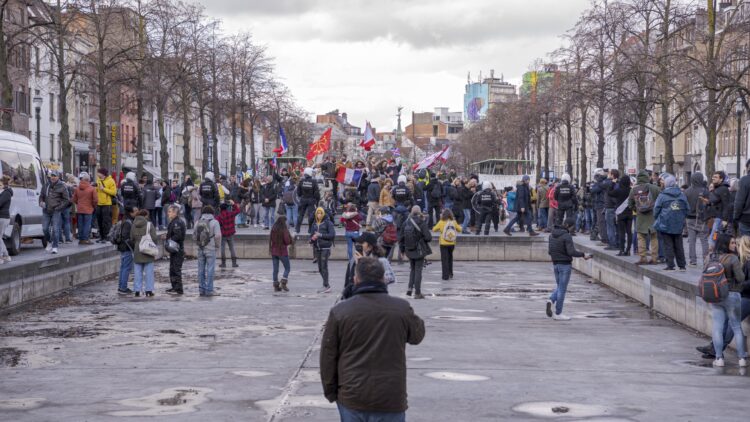Dries Van Langenhove also roams on Odysee, the ‘YouTube of the extreme right’
The video platform Odysee is gaining popularity in France and the United States. The site claims to be free from censorship and prides itself on freedom of expression.
Away from the big tech corporations, Odysee has emerged as the “YouTube of the far right,” where hate speech blends seamlessly with conspiracy theories. The platform is not (yet) very popular in Belgium, but Belgian member of the parliament Dries Van Langenhove (Vlaams Belang) already has a channel there.
Founded in 2020 by LBRY Inc., Odysee now has 30 million users, mostly males between the ages of 24 and 35. The medium’s attractiveness will also be partly related to its cryptocurrency-based source of income. The emerging platform is even regarded by experts as a virtual training ground for a young generation of right-wing extremists, precisely because of the more lax regulation and virtually absent monitoring.
In May last year, Odysee gained popularity in Belgium after the broadcast of the documentary Hold-up, which denounces the alleged manipulation and a worldwide conspiracy about Covid-19. That documentary was previously censored by the Vimeo platform, and that’s exactly where the sting is: it is wrong to assume that by deleting accounts, content, pages and groups on the major social media platforms, the spreading of disinformation will end. On the contrary, conspiracies, fake news and hate speech are only getting louder on alternative social media outlets like Telegram, Odysee and Bitchute. Alt-tech, as it’s called.
In those obscure microcosms, the ranks have expanded considerably since 2020 after they were given less free rein on regular platforms. With the virtual migration to niche platforms, the far right in particular is following the lead of their biggest counterpart, the Islamist extremists of Islamic State (IS).
As far back as 2016, more than 235,000 accounts linked to IS were deleted by Twitter. IS also went underground, which is a crystal clear illustration of the well-known waterbed effect. Censorship doesn’t always solve the problem, but sometimes moves it and even transforms messages of extremism and disinformation with the aim of stimulating a wide range of triggers that can stimulate affective polarization. This is a form of polarization that is more emotionally driven than ideological.
According to a recent study by the Flemish Peace Institute, affective polarization is of a problematic nature, because it means that citizens increasingly personally dislike people with opposing views. The report of the Flemish Peace Institute states that ‘’Due to affective polarization people who do not have strong opinions withdraw from the debate and feel politically alienated.’’
And Odysee certainly looks like that: it is the lost land of alienated and suspicious dropouts and withdrawers for whom the “globalist elite” is invariably the scapegoat. In addition, the successive large-scale crises from Covid-19 to the war in Ukraine act as a soap opera of fake news. The latest plot twist is the rise of the monkeypox virus, which is breathing new life into conspiracy theories of all kinds, according to research from CrossOver. “The public health mafia is caught red-handed planning another ‘outbreak’ from which they can terrorize the public and make money”. These are just a few statements circulating in videos shared by English-language accounts with audiences ranging from hundreds to 10,000 followers. Their mistrust is great and the conspiracies are grotesque.
Read the full article
This article was originally published by Hind Fraihi on Apache, journalistic partner in the CrossOver project.




